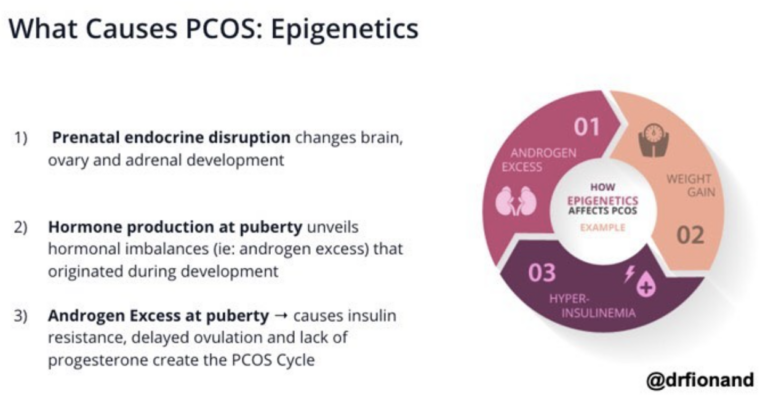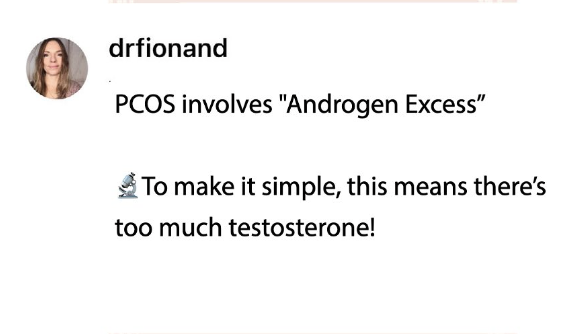PCOS involves “Androgen Excess”. This basically means there is too much of testosterone and other similar hormones!
Testosterone is the most well-known androgen, but a variety of other androgens can be involved in PCOS including:
- Androstenedione
- Dihydrotestosterone
- DHEA-S
- Androgens we don’t even measure!
PCOS involves genetic and epigenetic “androgen excess” and is lifelong. Exposure to high levels of androgens during fetal development or having a relative with PCOS/androgen excess increase the chances of someone having PCOS.
PCOS is not a temporary increase in androgens – it is a lifelong condition which is persistent and requires management and treatment.
Androgen excess is often seen in clinical symptoms but can also be seen in labs. These clinical symptoms are persistent meaning they also require long term management. The symptoms might change over time, but patients with PCOS experience androgenic symptoms at different times in life including:
- Unwanted hair growth (hirsutism)
- Scalp hair loss (androgenetic alopecia)
- Dandruff and Oily Scalp
- Acne (persistent, often on the jawline)
- Recurrent Boils (hidradenitis suppuritiva)
- Irregular cycles (far apart)
Levels of androgens in PCOS often naturally decrease with age!
- However, some patients will continue to have high levels from insulin resistance.
- Androgens can be more persistent with age in certain patients without insulin resistance.
- In some patients, androgens may rise again in perimenopause.
If you would like to learn more about how to support your PCOS, book an appointment here!






